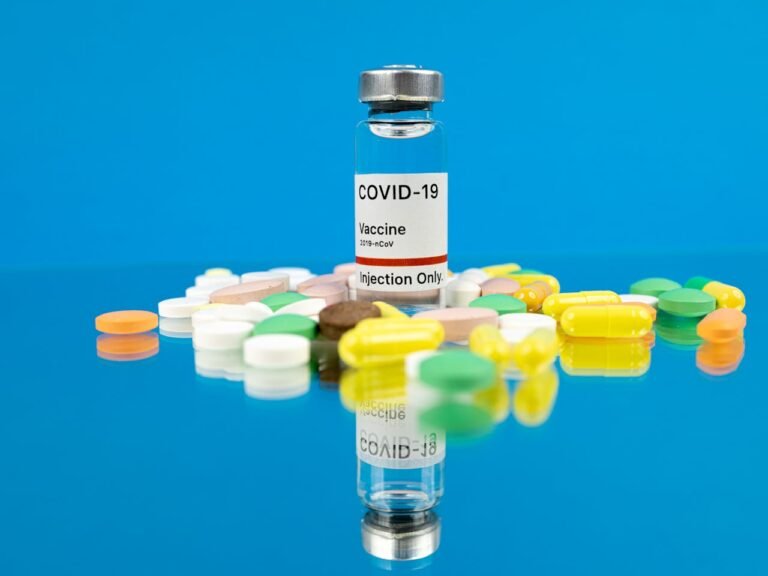Satellos Bioscience Inc., a clinical-stage biotechnology company pioneering regenerative treatments for degenerative muscle diseases, has announced compelling new results supporting the safety, tolerability, and early signs of efficacy of its lead candidate, SAT-3247, in adults with Duchenne muscular dystrophy (DMD). The data were presented at the 30th Annual Congress of the World Muscle Society, held in Vienna, Austria.
This latest update builds on Satellos’ growing body of evidence demonstrating the potential of SAT-3247 to restore the body’s natural muscle regeneration process—an ability lost in individuals with Duchenne. The findings mark a meaningful step forward in the company’s mission to deliver a safe, convenient, and mutation-independent treatment for this devastating disease.
Validating a New Mechanism for Muscle Regeneration
“Satellos’ new and updated clinical results from the 28-day clinical study in adults with Duchenne provide an important validation of SAT-3247’s potential to be a safe and clinically meaningful treatment,” said Frank Gleeson, co-founder and CEO of Satellos. “We are excited and confident in progressing into our next phase of clinical studies with the objective of demonstrating the transformative potential of SAT-3247 to the Duchenne community.”
SAT-3247, a first-in-class small molecule therapy, was designed to reboot the body’s impaired muscle regeneration mechanism. In Duchenne, mutations in the DMD gene lead to the absence of dystrophin, a crucial protein that stabilizes muscle fibers. Without dystrophin, repeated muscle injury and inflammation overwhelm the natural repair process, ultimately leading to progressive muscle loss and weakness.
Satellos’ scientific co-founders were among the first to uncover that this regenerative failure—not just the absence of dystrophin—is central to disease progression. SAT-3247 acts by modulating key pathways that restore muscle stem cell function, allowing the body to repair and rebuild muscle tissue naturally.
Encouraging Results from the 28-Day Phase 1a/b Study
The new data presented in Vienna reflect results from a 28-day clinical study in adult DMD patients aged 20 to 27 years. The study assessed safety, tolerability, pharmacokinetics, and exploratory measures of early drug effect.
According to the company, SAT-3247 was safe and well-tolerated across all dose levels. The drug demonstrated a favorable pharmacokinetic (PK) profile, indicating predictable and consistent absorption and metabolism. Importantly, no dose-limiting toxicities or drug-related adverse events of moderate or greater severity were reported.
Signs of Early Efficacy
Exploratory efficacy measures showed remarkable improvements in muscle function over the short treatment period. Participants receiving SAT-3247 experienced an average 118.6% increase in maximum grip strength in the dominant hand and a 97.9% improvement in the non-dominant hand, effectively doubling grip strength from approximately 2 kg to 4 kg.
These gains are significantly greater than those typically observed in the natural history of Duchenne, where adults in this age range typically experience progressive declines in strength. The observed improvements were correlated with higher drug concentrations at Day 15 and higher baseline creatinine levels—a marker associated with greater muscle mass. According to Satellos, these correlations suggest that SAT-3247 is achieving its intended biological effect on muscle tissue.
In addition to muscle strength improvements, participants demonstrated a 5.8% mean increase in predicted forced vital capacity (FVC)—a measure of respiratory function that usually declines by about 5% annually in adults with DMD. This unexpected improvement provides further evidence that SAT-3247 may be addressing the underlying mechanisms driving muscle degeneration. All other measures, including muscle volume and fatigue, remained stable during the study.
A Next Step Toward Long-Term Evaluation
Following the successful completion of the 28-day study, all five adult participants have been invited to enroll in an 11-month open-label follow-up study of SAT-3247. This extension trial will also include additional male participants aged 16 to 25 years living with Duchenne.
The primary objectives of the open-label study are to evaluate long-term safety and tolerability, as well as changes in muscle fat fraction—an imaging biomarker of muscle quality and health—in the biceps brachii. Secondary endpoints will examine SAT-3247’s effects on muscle strength, force, and overall physical function. Satellos expects to report initial interim results after participants complete their three-month follow-up assessments.
Dr. Wildon Farwell, Chief Medical Officer of Satellos, emphasized the significance of these findings:
“Satellos scientific co-founders were the first to recognize that the body’s innate process of muscle regeneration is severely impaired in Duchenne. They invented SAT-3247 with the aim of rebooting this impaired regeneration process, so that the body can once again repair and rebuild muscle,” he said. “These early signs of efficacy in adults with more advanced disease are incredibly encouraging and support expanding our clinical program to the broader Duchenne community. SAT-3247 has been designed to be a convenient, oral therapy with the potential to improve outcomes, regardless of an individual’s specific dystrophin mutation.”
Planning the Phase 2 Global Proof-of-Concept Study
Building on these positive initial findings, Satellos is advancing plans for a Phase 2 randomized, double-blind, placebo-controlled global study to evaluate SAT-3247 in ambulatory children with Duchenne. This proof-of-concept trial will focus on demonstrating the therapy’s efficacy in a younger, more functionally preserved population.
The Phase 2 study will primarily assess safety and tolerability, as well as improvements in muscle force. Secondary endpoints will evaluate changes in muscle quality, function, and regenerative capacity, providing a comprehensive understanding of SAT-3247’s therapeutic potential. Satellos has already submitted regulatory filings in the U.S. and internationally to support the initiation of this study.
A Step Toward a Mutation-Independent Therapy
Unlike gene therapies or exon-skipping approaches that target specific genetic mutations, SAT-3247 has been designed to treat the underlying regenerative defect common to all Duchenne patients, regardless of their individual mutation type. This mutation-independent mechanism positions SAT-3247 as a potentially universal therapy for Duchenne and other degenerative muscle disorders.
Looking Ahead
The early safety and efficacy data from the Phase 1a/b study provide a strong foundation for continued clinical advancement. As Satellos prepares for larger trials, the company remains committed to developing a treatment that can transform the lives of individuals and families affected by Duchenne—a community long underserved by existing therapeutic options.
With its novel mechanism, oral administration, and early signs of meaningful functional improvement, SAT-3247 represents a new frontier in muscle regeneration science and offers renewed hope for patients living with Duchenne muscular dystrophy.
ABOUT SAT-3247
SAT-3247 is a proprietary, oral, small molecule drug being developed by Satellos as a novel treatment to regenerate skeletal muscle that is lost in Duchenne muscular dystrophy and other degenerative or injury conditions. Satellos is advancing SAT-3247 as a potential treatment for DMD, independent of dystrophin and regardless of exon mutation status.



